
Diane Julie Abbott is a British politician who is a serving Member of Parliament (MP) for Hackney North and Stoke Newington since being elected in 1987. She served in the Shadow Cabinet of Jeremy Corbyn as Shadow Home Secretary from 2016 to 2020 and is an advisor to the Privy Council. She is both the first black woman elected to parliament and the longest-serving black MP. She remains a member of the Labour Party, while sitting in the House of Commons as an independent, having had the whip suspended in April 2023.
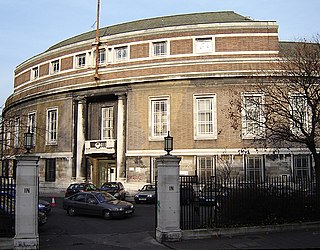
Stoke Newington is an area occupying the northwest part of the London Borough of Hackney, England. The area is five miles northeast of Charing Cross. The Manor of Stoke Newington gave its name to Stoke Newington the ancient parish.
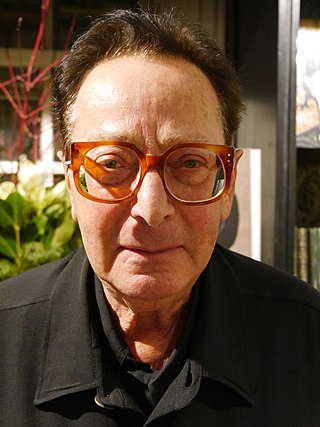
Maurice Nathan Saatchi, Baron Saatchi is a British businessman, and with his brother, Charles, co-founder of the advertising agencies Saatchi & Saatchi and M&C Saatchi.

Michael Abraham Levy, Baron Levy is a British life peer and former chartered accountant who was chairman and CEO of a large independent group of music companies. A long-standing friend of former prime minister Tony Blair, Levy was the chief fundraiser for the Labour Party under Blair and spent nine years as Blair's special envoy to the Middle East.
Postliberalism is an emergent political philosophy that critiques and seeks to move beyond the dominant Liberal paradigm of the late 20th and early 21st centuries. Proponents argue that liberalism, with its emphasis on individual rights, free markets, and limited government, has failed to adequately address societal challenges such as economic inequality, environmental degradation, social alienation, family breakdown, and a perceived loss of community and social cohesion.
David Thomas Pitt, Baron Pitt of Hampstead was a British Labour Party politician, general practitioner and political activist. Born in Grenada, in the Caribbean, he was the second peer of African descent to sit in the House of Lords, being granted a life peerage in 1975, and was the longest serving Black Parliamentarian.

Hugh Gater Jenkins, Baron Jenkins of Putney, was a British Labour politician, campaigner and member of Parliament (MP) and the House of Lords.
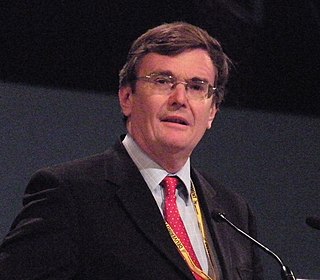
Matthew Alan Oakeshott, Baron Oakeshott of Seagrove Bay, is a British investment manager and member of the House of Lords, formerly sitting in Parliament as a Liberal Democrat.

Blue Labour is a British campaign group and political faction that seeks to promote blue-collar and culturally conservative values within the British Labour Party – particularly on immigration, crime, and community spirit – while remaining committed to labour rights and left-wing economic policies. It seeks to represent a traditional working-class approach to Labour politics. Launched in 2009 as a counter to New Labour, the Blue Labour movement first rose to prominence after Labour's defeat in the 2010 general election, in which for the first time the party received fewer working-class votes than it did middle-class votes. The movement has influenced a handful of Labour MPs and frontbenchers; founder Maurice Glasman served as a close ally to Ed Miliband during his early years as Leader of the Opposition, before himself becoming a life peer in the House of Lords. The movement has also seen a resurgence of interest after the loss of red wall seats in the 2019 general election.
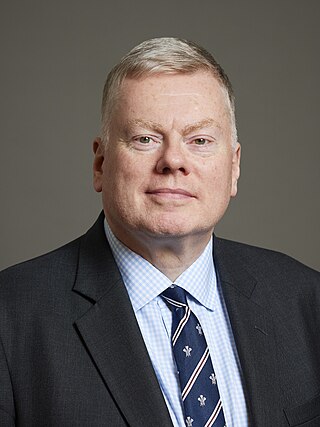
Roy Francis Kennedy, Baron Kennedy of Southwark, is a British Labour and Co-operative politician and life peer serving as Opposition Chief Whip in the House of Lords since 2021.
Marc Stears is a British political theorist. He is Director of the UCL Policy Lab, based at University College London, having previously led the Sydney Policy Lab at The University of Sydney. Before arriving in Sydney in 2018, Marc had been Chief Executive of the New Economics Foundation. He was previously Professor of Political Theory and Fellow of University College, Oxford. His published works have focussed mainly on the development of progressive political movements in the UK and the USA. He was a leading thinker in the Blue Labour movement. He was formerly chief speechwriter to Ed Miliband during the Labour leader's unsuccessful 2015 General Election campaign.

Tangled Up in Blue: Blue Labour and the Struggle for Labour's Soul is a 2011 politics book by the journalist and Labour councillor Rowenna Davis. The work tracks the emergence of Blue Labour, a movement within the UK Labour Party which seeks to promote active citizenship and to champion traditional community values. While Davis does describe Blue Labour's ideas and policy recommendations, the book focuses on political relationships and the roles these played in Blue Labour's development. In particular the book is concerned with Lord Glasman and his relationships with other academics, strategists, and politicians – especially David and Ed Miliband. The work is Davis's first book.

Rowenna Davis is a Labour Party politician. She is currently a councillor representing Waddon ward in the London Borough of Croydon. She has worked as a teacher and political journalist. She has previously been a Labour councillor for the London Borough of Southwark and contested the parliamentary seat of Southampton Itchen in the 2015 general election. She has written numerous articles for publications such as the New Statesman, The Guardian, The Sun and The Economist. In 2011, Davis authored Tangled Up in Blue, an examination of the rise of the Blue Labour movement.
Reginald Alfred Wells-Pestell, Baron Wells-Pestell, was a British social worker and Labour Party politician.
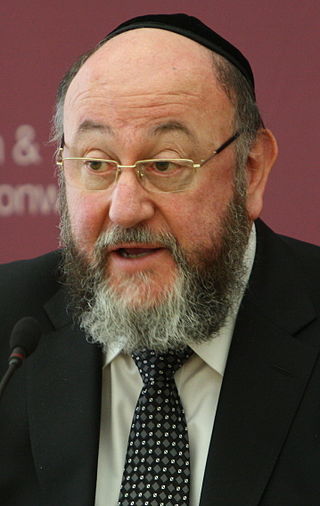
Sir Ephraim Yitzchak Mirvis is an Orthodox rabbi who serves as the Chief Rabbi of the United Hebrew Congregations of the Commonwealth. He served as the Chief Rabbi of Ireland between 1985 and 1992.

Blue Labour: Forging a New Politics is a 2015 book edited by Maurice Glasman, Baron Glasman, and Adrian Pabst. The collection of chapters by different contributors attempts to further articulate the Blue Labour political tendency within the Labour Party and British politics more generally, building on previous books such as The Labour Tradition and the Politics of Paradox: The Oxford London Seminars, 2010–2011 and Tangled Up in Blue. In his foreword, Rowan Williams states that whilst contemporary academic thought is increasingly questioning the idea of a "solitary, speechless individual" with utilitarian aims as a theoretical starting-point, this has not been accompanied by an associated shift in public rhetoric and popular imagination. He expresses his belief that if people are to change politics in a positive manner, especially in light of the recent financial crisis, we must develop new communitarian approaches that start from civil society upwards. The remainder of the book is accordingly a development of this basic notion, arranged thematically.
Samuel Fisher, Baron Fisher of Camden was a British businessman, local politician and leading member of the Jewish community.
There have been instances of antisemitism within the Labour Party of the United Kingdom (UK) since its establishment. Notable occurrences include canards about "Jewish finance" during the Boer War and antisemitic remarks from leading Labour politician Ernest Bevin. In the 2000s, controversies arose over comments made by Labour politicians regarding an alleged "Jewish lobby", a comparison by London Labour politician Ken Livingstone of a Jewish journalist to a concentration camp guard, and a 2005 Labour attack on Jewish Conservative Party politician Michael Howard.
New Stoke Newington Shul is a Masorti Jewish congregation, located in Stoke Newington in the Borough of Hackney, London, England, in the United Kingdom. The congregation is led by its inaugural rabbi, Roni Tabick, appointed in 2015.












